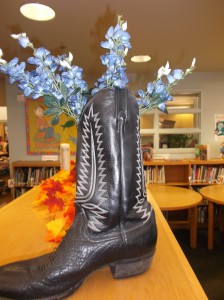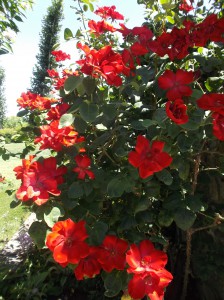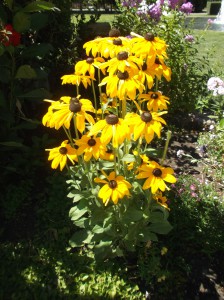Monthly Archives: January 2015
Revisions and Writing Goals
Today I plan to do revisions on a contemporary young adult novel that I’ve had in the works for ages. I’ve collected all the comments from my critique groups and am determined to start with chapter one and go through the entire manuscript until I am satisfied that it is the best that I can do and then start sending it out. I have not had time to tackle this project because in between I have been writing poetry and picture book manuscripts, traveling, entering writing contests, going to conferences and workshops, blah, blah, blah. No more excuses even though I have a stack of books that I have been dying to read.
Also, at our recent SCBWI local chapter meeting, we wrote a letter to ourselves about the goals we hope to accomplish as writers or illustrators this coming year. We sealed it and it will be mailed back to us sometime in 2015 to see if we have indeed done what we said we were going to do. Kinda neat, huh? I wrote down a specific goal that I have in mind. Hopefully, I will stick to it. We’ll see.
To get you started on the right track, here’s a post, “50 Articles on Writing to Help you in 2015,” written on the Writer’s Digest blog by Brian Klems. It covers topics you might be interested in as a writer: (a) starting your novel, (b) structure, plot, and character, (c) nonfiction writing, (d) grammar, (e) publishing … and much more. Now get to work!
“A writer ‘gets started’ the day he is born. The mind he brings into the world with him is the amazing machine his stories will come out of, and the more he feeds into it, the richer those stories will be.”—Lois Duncan
Short story contest winner!
What did I tell you about entering writing contests? That’s how I got started way back
when. A few months ago, I posted a link to a Kindergarten Story Contest sponsored by the Institute of Children’s Literature. Well, I myself, submitted a 150-word count story, which was the limited word count the guidelines stipulated. Guess what? I won! I won first place. See? You never know when you take a leap of faith and submit. Do it! Do it today!
I hope I am on a roll because I just submitted a short, short story to the Writer’s Digest annual contest. Will let you know the results after February when the winners are announced.
This link will take you to fabulous small, small libraries all over the country. Enjoy.
Short-short: A complete short story of 1,500 words or less.—Writer’s Digest Weekly Planner
Historical fiction tips
If you’re into writing historical fiction like I am, you will find the following link helpful. The post by Chuck Sambuchino on the Writer’s Digest Guide to Literary Agents blog, “5 Ways to Take Your Readers Back in Time: The Importance of Historical Research,” (I know, I know, long title), points out the following: (1) A passion for the period, (2) Complete immersion, (3) Homework before Play, (4) On writing-Brit-speak (if you are doing English research), (5) Real people. Very helpful advice.
My own historical fiction, which I have finished and am shopping around, takes place in Southwest Texas around the late 1938’s. I’ve done a lot of research on my topic, which was both fascinating and enjoyable. While researching, I found it easy to stray away from my subject when I discovered other stories that would also make good novels. Maybe I’ll come back to those later. Not cool to not stay focused.
And it’s close to that time of year again. Yes—income tax time. Another helpful Writer’s Digest blog, “What Writing Expenses Are Tax Deductible?” by Brian Klems will help you sort all those writing expenses you incurred during 2014. It’s gotta be done, my friend.
“Although there are no set rules on length, a short-short story usually runs 500-1500 words, a short story is 2,000-7,000, a long story is 8,000-15,000, and a novella is 20,000-50,000.” — Writer’s Digest Weekly Planner
Nuts & Bolts of Writing
This is “nuts & bolts” kind of stuff, but if you’re a beginner and are wondering how to format your manuscript before sending it off to an agent or editor, here’s a link on the Writer’s Digest blog written by Brian Klems on his The Writer’s Dig blog. He offers step-by-step instructions on this topic. It’s simple and to the point.
And to help you along the way, here is a detailed listing provided by Harold Underdown on his blog regarding, “News and Staff Changes of Children’s Book Publishers.”
Here’s an interesting link to “Vintage Ads for Libraries and Reading.” Visit the blog, BrainPickings to view these ads researched and written by Marie Popova. Enjoy.
I am in the middle of decluttering my small office so that I can really get started on writing again. Can’t believe I shredded so much stuff and still have more to go. Two things I do not like: clutter and filing papers, which accumulates so fast. Ugh!
Hope you’re having a good 2015 start on your writing!!!
Reading is to the mind what exercise is to the body.—Sir Richard Steele





